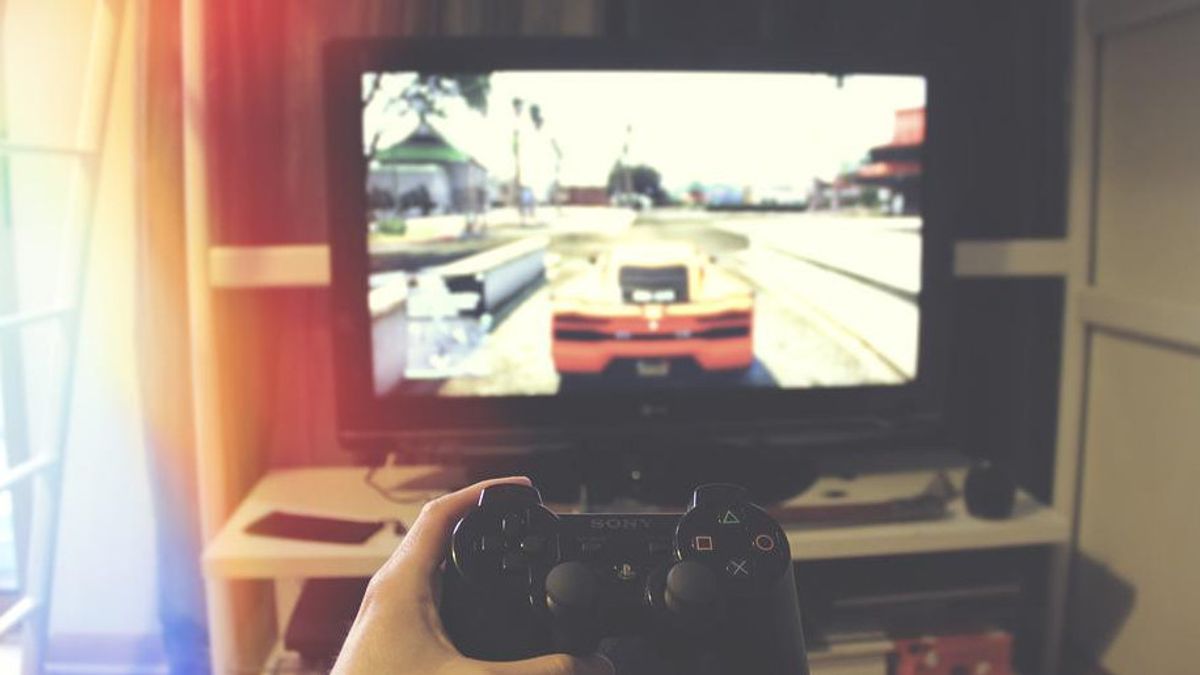JAKARTA - China lifted a nine-month freeze on gaming licenses after convicted companies made major adjustments to their business practices. These include the leader in China's gaming industry, Tencent. This revocation is also due to the economic impact of the ban.
The watchdog of the world's largest USD 47 billion video game market, has stopped issuing publishing licenses. While this is key to monetizing the game, last August followed a crackdown that restricted game time for minors. The freeze was lifted on Monday, April 11, when 45 games were re-licensed in China.
"The regulations this time are definitely the strictest," said Chenyu Cui, senior analyst at research firm Omdia, "Every company is afraid of failing to comply."
A source at a game studio of which Tencent Holdings is a major shareholder said it had been asked by Tencent to remove English words from its games. It avoids red and scrap words like "headshots" or "death" to match.
The studio also postponed the title's international release for fear it could be seen as evading Chinese rule, said the source, who declined to be named because he is not authorized to speak to the media.
During a similar license freeze in 2018, several projects chose to release their games, including Tencent's Bladed Fury and Iris Fall, overseas, pending the domestic situation being resolved. Tencent itself declined to comment on this.
Chinese regulators are also proactive in ensuring compliance in the state media sector that was once called a "spiritual opiate".
Two sources said that during the suspension, the company could still submit games for approval and receive regular feedback on required changes to their content or monetization features.
SEE ALSO:
In September 2021, a state-backed gaming association hosted a training program for developers in which they emphasized that games should highlight the "right set of values" and should not contain elements of violence or religion, according to a memo seen by Reuters.
Daniel Ahmad, senior analyst at Niko Partners, said that more than 5,000 game companies are now connected to the national anti-addiction system, many companies have made changes to in-game content, and non-compliance has been investigated and fined by relevant regulators.
"The concerns have been adequately addressed," Ahmad said.
Tencent, NetEase's smaller partner, and more than 200 other companies pledged in September to self-regulate to combat gaming addiction.
While companies are tidying up their “houses,” the deteriorating economic impact of the gambling crackdown can no longer be ignored by Beijing.
During the license freeze, around 14.000 video game-related companies, including those involved in merchandising, advertising and publishing, were forced to close.
Several highly anticipated projects have also been added, such as Lilith Games' Eden Apocalypse. A representative said this was due to a change in business direction.
Three game industry sources said many projects had been hit by hiring freezes as they were under pressure to cut their sizes and budgets.
"They are doing this to protect jobs," an industry executive told Reuters, referring to lifting the freeze and declining to be named because he was not allowed to speak to the media.
Chinese game stocks jumped immediately on Tuesday, September 12 after the relaxation of this regulation. Some analysts say it shows the government's commitment to the sector.
But some are also cautious, pointing out that only 45 games were approved this time around, compared to the 80 to 90 that are usually given the green light once a month before the freeze.
The landscape has completely changed, prompting some to diversify or consider leaving the Chinese market altogether.
According to Greg Pilarowski, head of law firm Pillar Legal, small Chinese gaming companies are considering switching to blockchain gaming in the West, even though that could mean leaving the Chinese market as Beijing bans unapproved cryptocurrencies.
"The current environment in China is very challenging for game companies," said Pilarowski. "So a lot of people are asking how they got into the blockchain game... because crypto and blockchain are very profitable for a lot of people in the US."
The English, Chinese, Japanese, Arabic, and French versions are automatically generated by the AI. So there may still be inaccuracies in translating, please always see Indonesian as our main language. (system supported by DigitalSiber.id)













